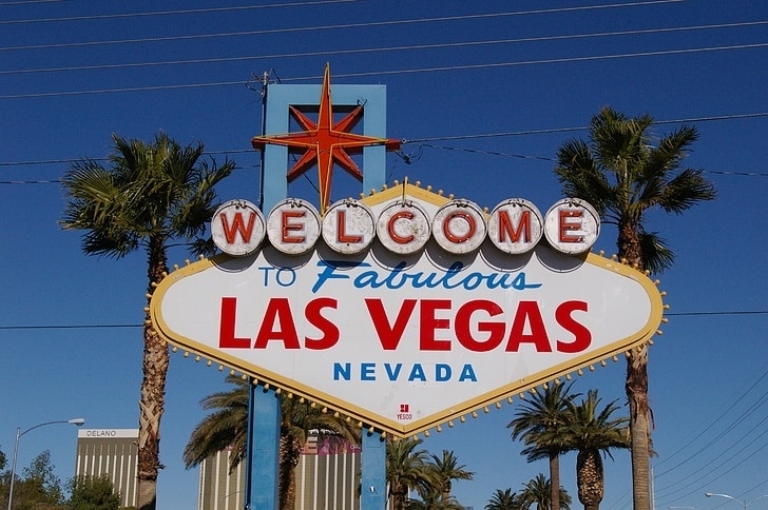

Luiz Carlos Prestes Filho: Casinos, entertainment, leisure, and music is the relationship historical in Brazil?
Frederico Lemos: Without a doubt. The golden age of casinos in Brazil is closely linked to leisure and entertainment. The economic development of the cities that housed casinos in Brazil had as a driving force the investment and the businesses that gravitated around them. During the short period of legality, between the 1930s and 1940s, casinos proliferated throughout Brazil, generating employment and income, fostering national tourism, and attracting foreign tourists.
As the majority were installed in luxury hotels, it was common to see in those establishments international personalities, politicians, artists, and celebrities. This is a period marked by great shows and musical attractions, among which the unforgettable Carmen Miranda who performed in several casinos throughout Brazil. Entertainment, leisure, and music are part of the productive chain of casinos and a source of job creation, income, and tax collection. The history of the presence of casinos in Brazil has left us this legacy of socio-cultural and economic development.
Would it be important, with the regulation of casinos and bingos in Brazil, to value artistic activities and inside establishments?
I believe it is important to follow models of regulation of more mature markets in which the installation of casinos and bingos necessarily entails counterparts for the city and the local population. Therefore, the creation of casinos and bingos takes place within tourist and entertainment complexes so that the main activity focused on gambling also involves other activities and services that generate jobs and income. It is in this context of opportunities that artistic activities stand out, from the most varied, from musical performances, dance shows to graphic and visual arts exhibitions. The regulation of the sector must necessarily provide in its context for the creation of broader structures aimed at the development of local tourism and activities related to the culture and entertainment sectors, thereby increasing the links in the productive chain of gambling to cover other activities that guarantee the sustainability of the sector and the local economy.
Take the example of Casino Iguazu, located in the city of Puerto Iguazu, a few meters from the border with Brazil, on the way to the Iguazu Falls tourist complex on the Argentine side, concentrating a large flow of tourists from the triple border (Brazil, Argentina, and Paraguay) that travel through the place. Not for nothing, Argentina accounts for more than half of Latin America's gambling revenue. This is an example to be followed and with enormous growth potential, given that Brazil's cultural, artistic, and environmental diversity are elements that add great value to economic development.

Should Brazilian musical content be given priority in casinos and bingos?
In my view, the answer to this question is necessarily linked to the entertainment theme planned by each establishment. By this I mean that casinos and bingos generate great value-added opportunities that go far beyond gambling. These opportunities range from architectural design and decoration, through licensing of entertainment content rights on betting machines, to the choice of musical ambience and live attractions. Let us think of a hypothetical scenario for the installation of a hotel complex with a casino on the Brazilian side of the triple frontier of Foz do Iguaçu. Imagine that the casino will explore the local theme with an emphasis on nature, flora, and fauna in the region, highlighting the importance of issues related to sustainability and biodiversity. It is to be imagined that the architecture, decoration, and artistic works that circulate within this establishment are in line with the chosen theme.
That is why I believe that the Brazilian artistic content will have a natural priority in casinos and bingos, due to the question of the higher added value that it confers on the enterprise. However, it is essential that the regulatory and inspection policies ensure equal access to all those interested in associating their content with bingos and casinos. It is to say that independent artists, community collectives and artists' associations must be guaranteed the same access rights as large economic groups and conglomerates. In the example mentioned above, it would be difficult to imagine a casino built on the banks of the Iguazu Falls, in the image and similarity of those existing in Las Vegas with the theme of Hollywood films. However, this risk is real in a scenario without access to the national product.
Would it be important to have a market reserve for Brazilian artists in these establishments?
This is an interesting question for which there is no easy answer. Issues related to market reserve policies must be analyzed on a case-by-case basis according to the sector and the context in which they fall. We can cite Brazilian experiences in the computer and automotive sectors in the 1970s and 1980s. The market reserve policies are based on the protection and development of the industry and the national product and must be launched in sectors of incipient development or of clear imbalance of forces in the economic domain.
Our experience in these two industrial sectors was not the best and the reversal of this policy in the early 1990s, with the opening of the markets, resulted in greater growth, competitiveness and quality of the products offered to the consumer, but with the commitment of a policy of sustainable growth, transforming Brazil into a mere consumer market for imported products.
With regard to the artistic sector, the quality and acceptance of Brazilian cultural production in the domestic market is undeniable. Brazil is one of the few territories in which national music is performed more than foreign music. The Brazilian's relationship with his music is historical, diverse, and rich. Therefore, there is no need to think of a market reserve for the Brazilian artist. Artistic production in Brazil is abundant and the market is mature.
Finally, I would like to emphasize that it is up to the State to ensure a healthy and competitive business environment, which allows it to intervene in the economic domain to correct any abuses and distortions generated by the concentration of economic power in small groups that may inhibit competition and prevent the independent Brazilian artist's access to new business opportunities. I believe that this is one of the biggest challenges for the Brazilian artist in an eventual scenario of large investments in the installation of casinos and bingos in large entertainment and tourism complexes across the country.
In Las Vegas, Macau, Monte Carlo, Punta del Este and in Estoril artistic activities play an important role. As it would be in Brazil. Could parties like carnival be part of the calendar / imagery of each establishment?
In any sector of the economy, the product and service with the highest added value provide the highest return on investment. It is no wonder that the vast majority of gambling establishments are located within hotel and entertainment complexes. The simple bet on games has a certain value, but the bet on games in an environment where the customer consumes other products and services has a much greater added value. We can mention dozens of other festivities and Brazilian cultural and folkloric expressions that can accompany the attractions of June parties and carnival in these establishments. Brazilians are a people who produce and consume their cultural production. But let us not forget foreign tourists, true admirers, and avid consumers of our cultural production. The foreigner who comes to Brazil wants to know our culture, our gastronomy, our natural beauty. For this reason, I believe, a venture built in the image and likeness of casinos in Las Vegas, Macau and other locations would not reach its full potential.

Could national platforms for electronic casino and bingo games provide the power to promote Brazilian music? Would national content have more space in the world?
In my view, digital platforms are very different from the physical spaces of casinos and bingos. Traditional casinos and bingos are true entertainment centers, which in addition to betting offer other ranges of products and services to their customers. Their audience is made up not only of players, but of people looking for new entertainment options. The virtual platforms, on the other hand, are aimed only at betting games and, for that very reason, it has as its target audience players focused on betting. I do not see electronic gaming platforms as spaces for the dissemination of music or any other form of artistic expression. On the other hand, there is the possibility of investments in marketing and advertising for betting game platforms in artistic digital channels, in the same way as some sports betting platforms are currently investing in football clubs in Brazil and around the world. Although there is no clear correlation between artistic content and gambling, it is undeniable that the artistic sector has great popular appeal and for this reason it is an interesting channel for promoting products and services for a specific target audience.
Is there any concern in Brazilian copyright societies and ECAD about the possibility of opening casinos and bingo halls? Is there a collection of musical content explored on digital platforms?
Every company or business needs a license from the Central Collection and Distribution Office (ECAD) to legally use music in its establishment or enterprise. The use of music in physical and virtual spaces is protected by copyright law. On its website, ECAD provides the public with information on the legal use of music, including the publication of its collection regulations in which it is possible to know the principles and licensing rules according to the characteristics of each establishment or enterprise. Unless I am mistaken, there is no express provision in the ECAD regulation on the collection of copyrights in bingos and casinos, not least because there is still no legal provision for the operation of these establishments in Brazilian territory.
However, ECAD and the associations are always vigilant as to the new means of using music and certain that, with the approval of the operation of these establishments, the principles and rules that guide the collection regulation will be used for the correct framing of these activities. so that the corresponding licensing of rights is carried out, through the collection and subsequent distribution of copyright to their respective owners.
It is important to note that digital platforms are also subject to licensing and payment of copyrights. However, given its virtual nature and the lack of physical borders, there are other criteria for identifying the service provider's domicile, and licensing may be carried out by collective management entities from one or more countries.
Source: Luiz Carlos Prestes Filho – Executive Director of newspaper Tribuna da Imprensa Livre